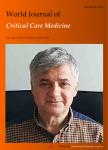New pharmacological approaches against chronic bowel and bladder problems in paralytics
New pharmacological approaches against chronic bowel and bladder problems in paralytics作者机构:Department of Psychiatry and Neurosciences Laval University Laval University Medical Center (CHU de Québec - CHUL)
出 版 物:《World Journal of Critical Care Medicine》 (世界重症医学杂志)
年 卷 期:2016年第5卷第1期
页 面:1-6页
学科分类:1011[医学-护理学(可授医学、理学学位)] 10[医学]
主 题:Prevention of intensive care problems Quality of care Temporary recovery of vital functions Micturition Defecation Spinal networks Central pattern generators
摘 要:Spinal cord injury(SCI) leads generally to an irreversible loss of sensory functions and voluntary motor control below injury level. Cures that could repair SCI and/or restore voluntary walking have not been yet developed nor commercialized. Beyond the well-known loss of walking capabilities, most SCI patients experience also a plethora of motor problems and health concerns including specific bladder and bowel dysfunctions. Indeed, chronic constipation and urinary retention, two significant life-threatening complications, are typically found in patients suffering of traumatic(e.g., falls or car accidents) or non-traumatic SCI(e.g., multiple sclerosis, spinal tumors). Secondary health concerns associated with these dysfunctions include hemorrhoids, abdominal distention, altered visceral sensitivity, hydronephrosis, kidney failure, urinary tract infections, sepsis and, in some cases, cardiac arrest. Consequently, individuals with chronic SCI are forced to regularly seek emergency and critical care treatments when some of these conditions occur or become intolerable. Increasing evidence supports the existence of a novel experimental approach that may be capable of preventing the occurrence or severity of bladder and bowel problems. Indeed, recent findings in animal models of SCI have revealed that, despite paraplegia or tetraplegia, it remains possible to elicit episodes of micturition and defecation by acting pharmacologically or electrically upon specialized lumbosacral neuronal networks, namely the spinal or sacral micturition center(SMC) and lumbosacral defecation center(LDC). Daily activation of SMC and LDC neurons could potentially become, new classes of minimally invasive treatments(i.e., if orally active) against these dysfunctions and their many lifethreatening complications.



